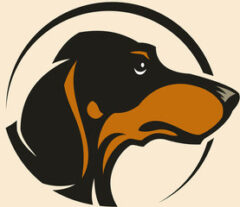
How To Keep Dachshund Healthy

Are you a proud owner of a Dachshund? If so, you know how important it is to keep your furry friend healthy and happy. From their distinctive long bodies to their playful personalities, Dachshunds are truly a unique breed. In this article, we will explore the top tips and strategies to ensure your Dachshund’s well-being and longevity.
The importance of keeping your Dachshund healthy
Keeping your Dachshund healthy is crucial for their overall well-being. These adorable little dogs are prone to certain health issues, such as back problems and dental issues, which can significantly impact their quality of life. By following the right practices and providing proper care, you can help your Dachshund live a long and happy life.
One of the most important aspects of keeping your Dachshund healthy is maintaining a balanced diet. Proper nutrition plays a vital role in their overall health and can help prevent common health issues. Additionally, regular exercise and mental stimulation are essential for Dachshunds to stay fit and mentally sharp. Regular veterinary care and preventive measures are also crucial to catch any potential health problems early on.
Common health issues in Dachshunds
Dachshunds are prone to several health issues that owners should be aware of. One of the most common issues is their susceptibility to back problems, such as intervertebral disc disease. Their long bodies put them at a higher risk of developing spinal issues, which can lead to pain, paralysis, and other complications. It is essential to take preventive measures, such as avoiding activities that strain their back and providing them with proper support and cushioning.
Dental problems are another common issue in Dachshunds. Their small mouths and crowded teeth make them more susceptible to dental diseases, including gum disease and tooth decay. Regular dental care, such as brushing their teeth and providing dental chews, can help maintain their oral health.
Additionally, Dachshunds are prone to obesity, which can lead to various health problems. It is crucial to monitor their weight, provide a balanced diet, and engage them in regular exercise to prevent weight gain and maintain their overall health.
1} Proper nutrition for Dachshunds
Proper nutrition is vital for keeping your Dachshund healthy. A balanced diet that meets their nutritional needs is essential for their overall well-being. It is important to choose high-quality dog food that is specifically formulated for small breeds and takes into account their unique dietary requirements.
Dachshunds require a diet that is rich in protein and low in fat to support their muscle maintenance and to prevent weight gain. Look for dog food that contains real meat as the primary ingredient and avoids fillers and artificial additives.
Additionally, Dachshunds may have dietary restrictions or sensitivities, so it is important to be aware of any specific dietary needs they may have. Some Dachshunds may be sensitive to certain ingredients, such as grains or common allergens like chicken or beef. If you notice any signs of food allergies or sensitivities, consult with your veterinarian to determine the best diet for your Dachshund.
2} Exercise and mental stimulation for Dachshunds
Regular exercise is essential for Dachshunds to maintain a healthy weight and prevent obesity. Despite their small size, Dachshunds are energetic dogs that need to burn off energy. Engaging them in daily exercise routines and activities is crucial for their physical and mental well-being.
Taking your Dachshund for daily walks is a great way to keep them active and ensure they get the exercise they need. Additionally, providing them with opportunities for playtime and mental stimulation, such as puzzle toys or interactive games, can keep their minds sharp and prevent boredom.
However, it is important to avoid activities that put excessive strain on their backs, as Dachshunds are prone to back problems. Jumping from heights or engaging in high-impact activities should be avoided. Instead, focus on low-impact exercise options, such as swimming or gentle playing.
3} Grooming tips for Dachshunds
Proper grooming is essential for maintaining your Dachshund’s hygiene and overall health. Their short, smooth coats require regular brushing to remove any loose hair and prevent matting. Additionally, regular nail trimming is necessary to prevent overgrowth and discomfort.
Dachshunds are also prone to ear infections, so it is important to regularly clean their ears and check for any signs of infection or irritation. Consult with your veterinarian for the best ear cleaning products and techniques.
Lastly, dental care should not be neglected. Brushing your Dachshund’s teeth regularly or providing dental chews can help prevent dental diseases and keep their teeth clean and healthy.
4} Regular veterinary care for Dachshunds
Regular veterinary care is essential for maintaining your Dachshund’s health. Routine check-ups allow the veterinarian to monitor their overall well-being, catch any potential health problems early on, and provide necessary vaccinations.
In addition to regular check-ups, it is important to stay up-to-date with vaccinations, flea and tick prevention, and heartworm prevention. Regular parasite control and preventive medications are crucial to protect your Dachshund from common parasites and diseases.
If you notice any changes in your Dachshund’s behavior, appetite, or overall health, it is important to consult with your veterinarian promptly. Early detection and intervention can make a significant difference in the outcome of any potential health issues.
5} Preventive measures for Dachshunds
Prevention is key when it comes to keeping your Dachshund healthy. In addition to the preventive measures already mentioned, there are several other steps you can take to ensure their well-being.
Maintaining a safe environment is crucial to prevent accidents and injuries, especially for Dachshunds with back problems. Avoid letting them jump from heights or engage in activities that could strain their backs. Providing them with ramps or stairs to access furniture or beds can help reduce the risk of injury.
Proper socialization and training are also important for Dachshunds. Early socialization can help prevent behavioral issues and ensure they interact well with other dogs and people. Basic obedience training is essential for their safety and well-being.
6} Training and socialization for Dachshunds
Dachshunds are intelligent dogs that respond well to training. Basic obedience training, such as sit, stay, and come, is important for their safety and to ensure they are well-behaved members of your household. Positive reinforcement techniques, such as treats and praise, work best with Dachshunds.
Socialization is equally important, especially for Dachshunds who can be prone to anxiety or aggression. Exposing them to different people, animals, and environments from a young age can help them become well-adjusted and confident dogs.
Attend puppy classes or seek the guidance of a professional dog trainer to ensure you are providing your Dachshund with the proper training and socialization they need.
Conclusion and final thoughts
Keeping your Dachshund healthy requires a combination of proper nutrition, regular exercise, grooming, veterinary care, and preventive measures. By following the tips and strategies outlined in this article, you can ensure your Dachshund enjoys a long, happy, and healthy life.
Remember to provide them with a well-balanced diet, engage them in regular exercise and mental stimulation, and prioritize their grooming and veterinary care needs. With your love and attention, your Dachshund will thrive and bring you joy for many years to come.
Tags:
